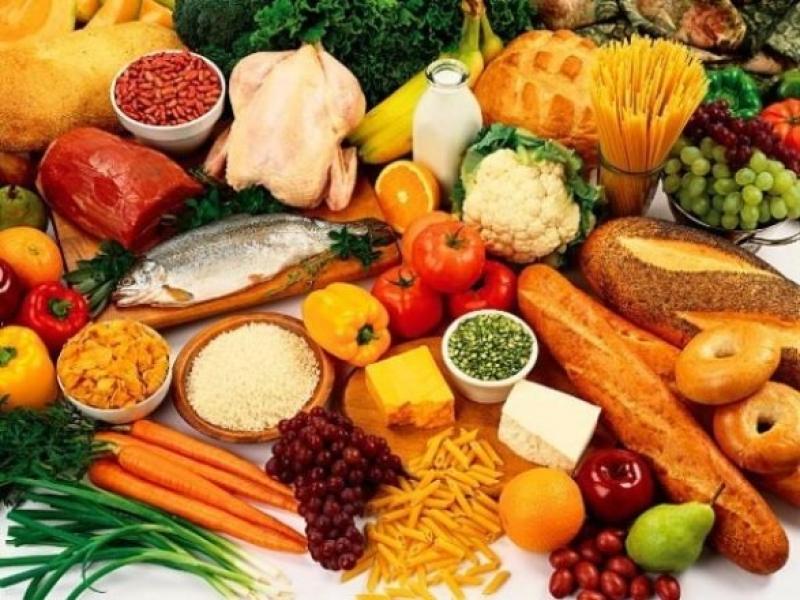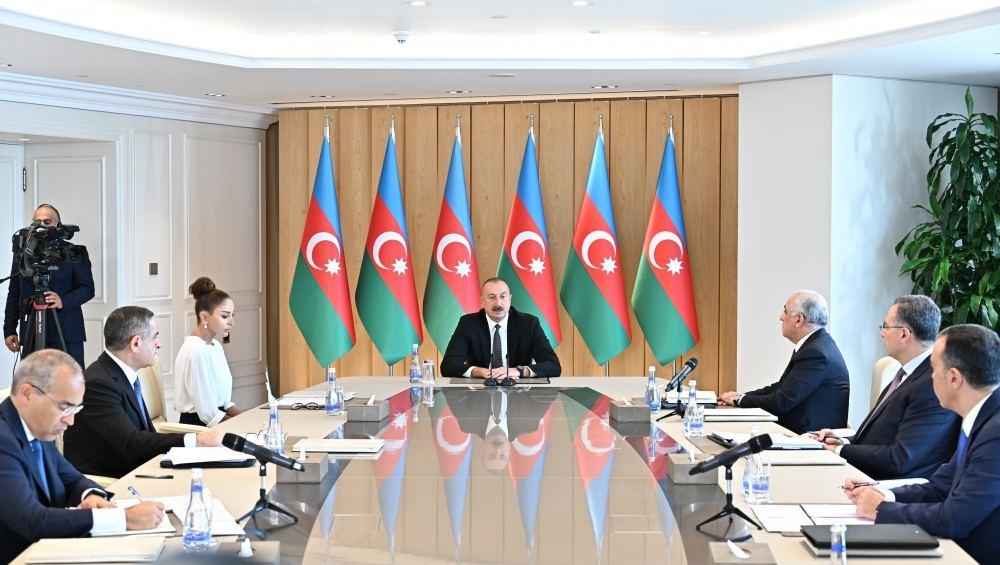Azerbaijan set to overcome global food security challenges Can Azerbaijan reduce dependence on food imports?
On June 24, 2022, the World Food Programme (WFP) warned that a global food crisis fuelled by conflict, climate shocks and the COVID-19 pandemic is growing because of the ripple effects of the war in Ukraine driving rising prices of food, fuel and fertiliser.
WFP called for coordinated action to address the crisis as millions of people across the world are at risk of being driven into starvation unless action is taken now to respond together and at scale.
In light of regional conflicts, climate change and other hardships caused by the pandemic, many ponder if Azerbaijan will be able to reduce its dependence on foreign food imports and overcome the test.
Research by the OEC (Observatory of Economic Complexity) team stated that in 2020, Azerbaijan imported $289 million in wheat, becoming the 43rd largest importer of wheat in the world. In the same year, wheat was the fourth most imported product in Azerbaijan. Azerbaijan imports wheat primarily from Russia, Kazakhstan, Türkiye, Austria, and Georgia.
According to GIEWS Country Brief 2022, Azerbaijan imports wheat mostly from the Russian Federation, however, the share of purchases from Kazakhstan has strongly increased in the first five months of 2022. In Kazakhstan, restrictions on wheat exports were introduced from April 15 until June 15, and then extended until end-September 2022 (FPMA Food Policy). Some concerns over the capacity to cover wheat import requirements arise amidst the possibility of new export restrictions.
In its March 2022 analysis of the economic consequences of the Russia-Ukraine war for Azerbaijan, the Baku-based Centre for Economic and Social Development underlined that Russia, as well as Ukraine, are massive growers in agriculture and food globally including fertilisers, grain, wheat and cross-border trade of agricultural commodities between Azerbaijan and them is one of the key components in bilateral trade relations.
"Worse than ever before, combined with disrupted supply channels, suspended productions, and sanctions on Russia, food scarcity followed by higher prices in food or associated ingredients amid already higher price pressures may result from the war," the analysis noted.

Azerbaijan facing major test
On August 1, Economy Minister Mikayil Jabbarov said that Azerbaijan must be ready for crises after high prices and the country should draw up its plans in view of this situation.
Jabbarov noted that the most important thing is that Azerbaijan maintains its stability in both positive and negative market conditions.
Earlier, in an interview with the local Baku-based REAL TV channel in late July, Agriculture Minister Inam Karimov admitted that the most important direction in the field of food security for Azerbaijan is to provide itself with wheat and grain products.
He reiterated that the difficulties caused by the coronavirus pandemic in all areas in recent years had not gone unnoticed in the agricultural sector; it had created many difficulties in terms of production, product transportation, and logistics. The minister emphasised that this had caused a number of difficulties in developing countries' agricultural product self-sufficiency, and as a result, a number of states have imposed food export restrictions and bans.
The minister added that "Azerbaijan is one of the countries with limited land and water resources, and climate change directly affects them".
Karimov noted that "climate change is one of the main stressors for food security. This is also typical for Azerbaijan".
He noted that the main part of Azerbaijan's cropland (1 million hectares) is used for the production of grain crops.
"Half of them are irrigated, and the remaining 50 per cent are dry land. Exacerbation of drought in the future is inevitable. The International Natural Resources Institute has included Azerbaijan among the 20 countries subject to desertification processes until 2040. Therefore, the correct use of water and land resources is one of the most important factors," the minister said.
Back in May 2022, Karimov said that Azerbaijan attaches great importance to cooperation with the Food and Agricultural Organization (FAO) in the framework of the organisation's strategies and programmes to strengthen the resilience of the global food security system.
"FAO's Hand-in-Hand, Farm to Table, Solidarity for Health initiatives and other related strategic initiatives are modern guidelines for responding to critical factors affecting food security systems. Azerbaijan joins these initiatives with great enthusiasm and is ready to cooperate effectively on these multilateral forums," he added.
It is believed that Azerbaijan can easily overcome the threat of global food shortage although it ranks 56th in the overall indicators with a maximum of 62.6 points. It surpasses a number of developed countries in terms of affordability with 82.3 points.
According to food security expert Murvat Hasanli, the most concerning aspect of Azerbaijan's ranking in the Food Security Index is that we are far behind in terms of natural resources and resilience. Azerbaijan is ranked sixth out of 113 countries in this category, with 38.2 points.
Benin, Ghana, Bangladesh, Mozambique, and Indonesia are the countries that take us back. This low figure demonstrates that we are still dependent on imports for many food products. The expert believes only purposeful work by the Azerbaijani authorities can help the country deal with the problem.

Azerbaijan's steps to ensure food security
On July 19, President Ilham Aliyev signed a decree on a number of measures to increase the level of self-sufficiency with food wheat. In the decree, the country's president sees the application of modern technologies and the proper use of water resources as a solution to the problems that Azerbaijan face in the field of food security. One of the critical steps to be taken in this direction is to involve the liberated territories in the agricultural sector.
The presidential decree establishes that Azerbaijan's agriculture, economy, justice, and finance ministries along with the State Reserves Agency will develop an action plan to improve the legislation on grain. These agencies will prepare and submit to the Cabinet of Ministers' proposals on improving the mechanism for providing soft loans and implementing state guarantees for food wheat producers in order to create modern farms and acquire modern irrigation systems.
The decree identifies increased food wheat production as the most pressing issue in the field of food security. According to Clause 1 of the decree, "in the initial stage, as a pilot project, according to the contract concluded with the Azerbaijani Agriculture Ministry, food wheat produced by persons who have committed to the production of food wheat in farms where modern irrigation systems are applied and handed over to the Azerbaijani State Reserves Agency and flour mills, a crop subsidy should be applied to the given food wheat for a period of one year".
The introduction of a five-year crop subsidy is unquestionably motivated by the need to encourage Azerbaijani farmers to produce food wheat. Clause 2.2 of the decree mentions improving the mechanism for providing preferential loans to farmers for the purchase of modern irrigation systems and stresses the importance of the Cabinet of Ministers preparing related projects and presenting them to the president.
The document also imposes significant obligations on the Agriculture Ministry as Clause 3.3 states that the Agriculture Ministry's Agrarian Credit and Development Agency should grant concessions under the law to farms that want to build modern irrigation systems for the purpose of producing food wheat.
Back in late December, President Ilham Aliyev presented the programme "Strategic roadmap for the production and processing of agricultural products in the Republic of Azerbaijan" and set a task for local farmers to provide Azerbaijan with 100 per cent food products.
The president repeatedly reiterated the importance of fully supplying Azerbaijan with food products, saying: "We can fully provide for ourselves, that is, 100 per cent and the local component in the food products can be even greater. Our mission is to completely supply ourselves with food. This is what it means to be food secure."








